
Quebo: The Hidden Gem of Guinea-Bissau
Set in the southeastern part of Guinea-Bissau, Quebo offers a unique blend of cultural heritage and natural beauty. This small city is a serene escape from the hustle and bustle of modern life. Its rich history and warm, welcoming locals make it a perfect destination for those looking to explore off-the-beaten-path locations. Quebo is a gateway to some of the most beautiful landscapes in Guinea-Bissau. The city is surrounded by lush greenery and offers numerous opportunities for outdoor adventures. Visitors can take long walks through the forests, go bird-watching, or simply enjoy the tranquility of the natural surroundings. The local river adds a picturesque touch to the scenery, making it a great spot for photography and relaxation. The city is also known for its vibrant culture and traditions. Visitors can immerse themselves in the local way of life by visiting traditional markets, where they can purchase handmade crafts and taste local delicacies. Quebo's cultural heritage is deeply rooted in its history, and exploring its streets will give you a glimpse into the past. The locals are friendly and eager to share their stories, adding a personal touch to your travel experience.
Local tips in Quebo
- Carry cash as ATMs are scarce and many places do not accept credit cards.
- Learn a few phrases in Portuguese or the local Creole to communicate with locals.
- Visit during the dry season (November to April) for the best weather conditions.
- Try the local cuisine, especially fresh seafood and traditional dishes like 'caldo de peixe'.
- Respect local customs and dress modestly, especially when visiting villages and traditional markets.
Quebo: The Hidden Gem of Guinea-Bissau
Set in the southeastern part of Guinea-Bissau, Quebo offers a unique blend of cultural heritage and natural beauty. This small city is a serene escape from the hustle and bustle of modern life. Its rich history and warm, welcoming locals make it a perfect destination for those looking to explore off-the-beaten-path locations. Quebo is a gateway to some of the most beautiful landscapes in Guinea-Bissau. The city is surrounded by lush greenery and offers numerous opportunities for outdoor adventures. Visitors can take long walks through the forests, go bird-watching, or simply enjoy the tranquility of the natural surroundings. The local river adds a picturesque touch to the scenery, making it a great spot for photography and relaxation. The city is also known for its vibrant culture and traditions. Visitors can immerse themselves in the local way of life by visiting traditional markets, where they can purchase handmade crafts and taste local delicacies. Quebo's cultural heritage is deeply rooted in its history, and exploring its streets will give you a glimpse into the past. The locals are friendly and eager to share their stories, adding a personal touch to your travel experience.
When is the best time to go to Quebo?
Iconic landmarks you can’t miss
Dunia Hotel Bissau (Azalaï Hotel 24 de Setembro)
Experience the charm of Bissau at Dunia Hotel, where comfort meets culture in the heart of Guinea-Bissau.

Coqueiros Bissau
Experience the vibrant flavors of Guinea-Bissau at Coqueiros Bissau, where local cuisine meets a welcoming atmosphere for an unforgettable dining experience.
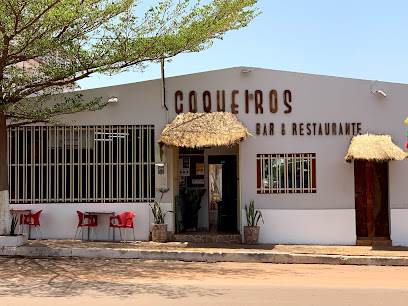
Ponta Anchaca
Experience the serene beauty of Ponta Anchaca, a luxurious hotel in the heart of Guinea-Bissau's Bijagos Archipelago, where nature meets culture.

Empire Square
Explore Empire Square in Bissau, a memorial park that beautifully intertwines nature with the rich cultural heritage of Guinea-Bissau.
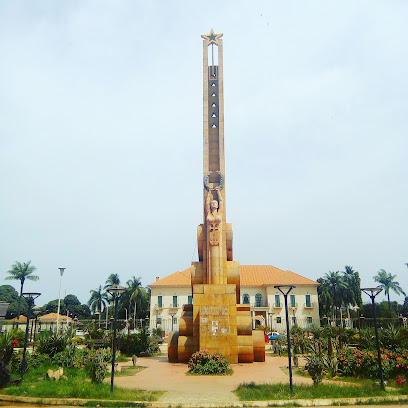
Praca Titina Silá
Experience tranquility at Praca Titina Silá, a beautiful garden in Bissau, perfect for relaxation and cultural immersion amidst vibrant nature.
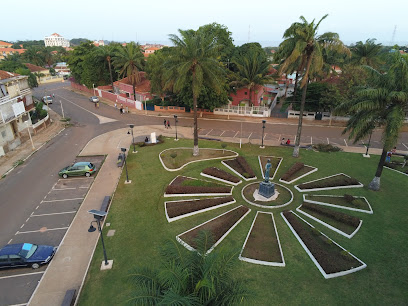
Cufada Lagoons Natural Park
Explore Cufada Lagoons Natural Park, a breathtaking national park in Guinea-Bissau, featuring stunning lagoons, diverse wildlife, and rich cultural experiences.
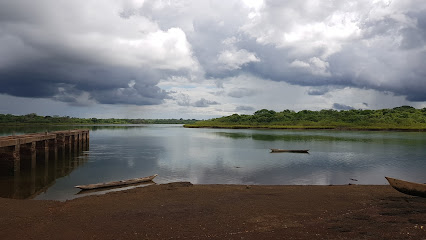
CONSULMAR BISSAU
Experience the beauty of Guinea-Bissau's waterways with Consulmar Bissau's exceptional boat rentals and guided tours for an unforgettable adventure.
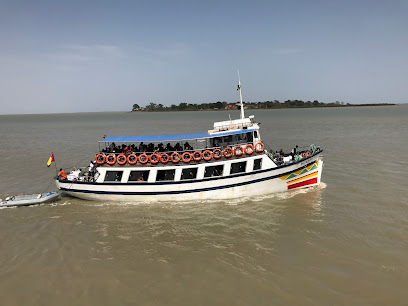
Monumento aos Heróis da Independência
Discover the Monument to the Heroes of Independence in Bissau, a tribute to freedom and a key historical landmark surrounded by vibrant local culture.
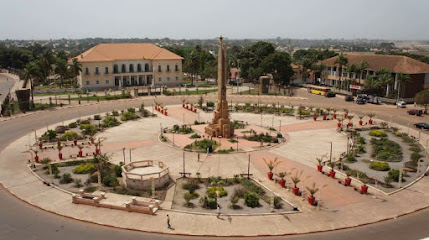
Bubaque
Explore Bubaque Island's untouched beauty, diverse wildlife, and vibrant local culture in the heart of Guinea-Bissau's Bijagós Archipelago.
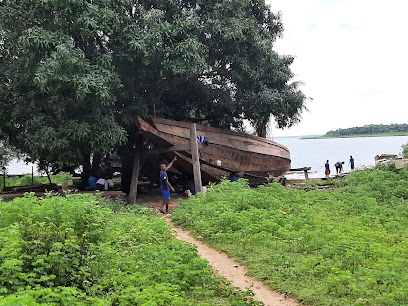
Fort São José da Amura
Uncover the rich history and stunning views at Fort São José da Amura, a captivating fortress in Bissau, Guinea-Bissau.
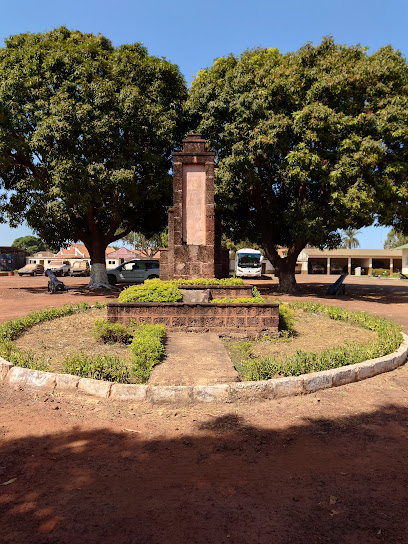
Bubaque Island Hotel
Experience the serene beauty and rich culture of Bubaque Island Hotel, your gateway to the stunning Bijagos Islands of Guinea-Bissau.
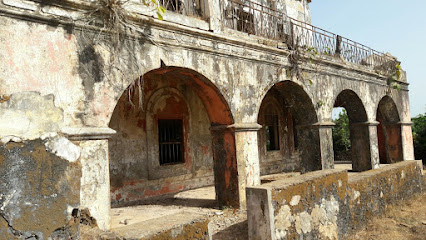
Fort Cacheu
Explore Fort Cacheu, a historic fortress overlooking the Cacheu River, and uncover the rich history of Guinea-Bissau's colonial era.
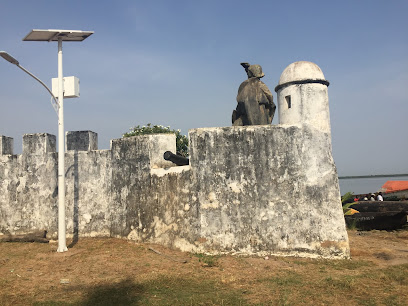
غينيا بيساو
Explore the cultural heart of Bissau through its grocery store, a vibrant place for fresh local produce and a taste of Guinea-Bissau's culinary traditions.

World Guiné Bissau
Experience the vibrant culture and artistic heritage of Bissau, Guinea-Bissau, a perfect destination for those seeking unique local experiences.
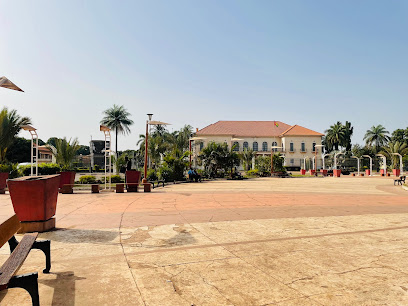
Dulombi-Boe National Park_1
Explore the stunning biodiversity and serene landscapes of Dulombi-Boe National Park, a hidden paradise in Guinea-Bissau for nature lovers and eco-tourists.

Essential places to dine
Dunia Hotel Bissau (Azalaï Hotel 24 de Setembro)
Discover comfort and culture at Dunia Hotel Bissau – where local charm meets modern hospitality in Guinea-Bissau.
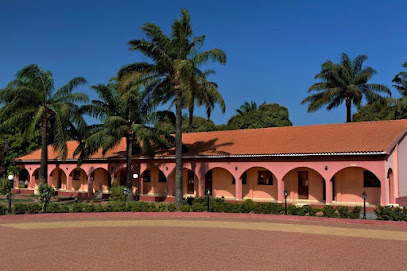
Restaurante Papa Loca
Experience authentic Guinea-Bissauan cuisine at Restaurante Papa Loca in Bissau – where every meal tells a story.
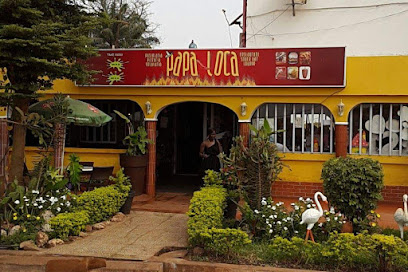
O Bistro
Experience authentic Italian cuisine at O Bistro in Bissau – where every meal is crafted with love and tradition.
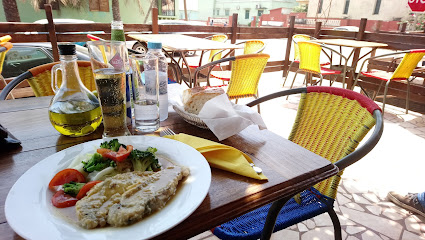
Coqueiros Bissau
Discover the authentic flavors of Guinea-Bissau at Coqueiros Bissau, where every dish is a celebration of local culinary traditions.
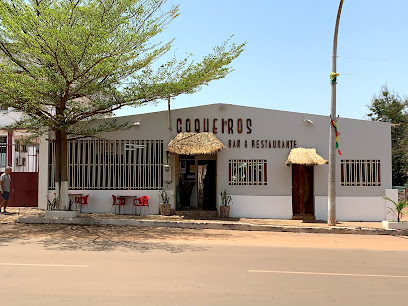
A Padeira Africana
Discover the authentic tastes of Guinea-Bissau at A Padeira Africana – where local cuisine meets warm hospitality in Bissau.
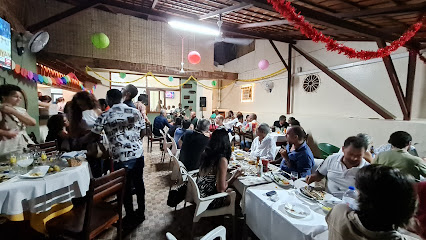
Almagui Restaurante & Apart-Hotel
Discover authentic Guinea-Bissau cuisine at Almagui Restaurante & Apart-Hotel while enjoying comfortable accommodations in the heart of Bissau.
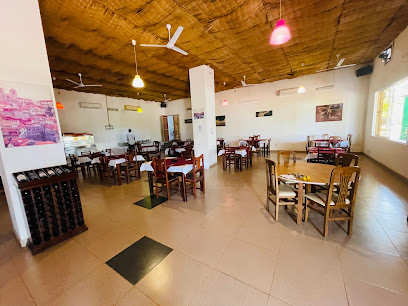
Marisqueira de Safim
Experience authentic Guinea-Bissau seafood at Marisqueira de Safim – a must-visit culinary gem in Safim.
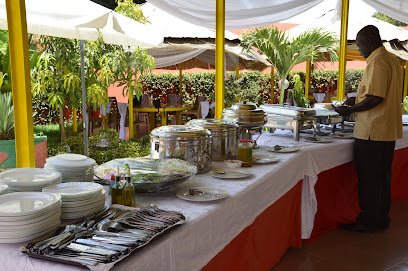
Mia Terra
Experience authentic Italian cuisine at Mia Terra in Bissau - where every pizza tells a story of flavor and warmth.
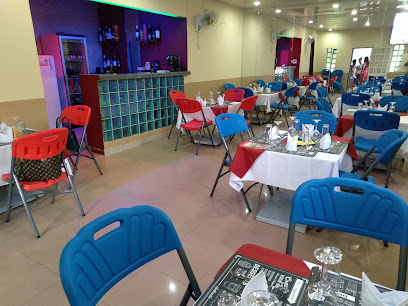
Restaurant Sénégal-Bissau
Discover authentic West African cuisine at Restaurant Sénégal-Bissau in Bissau, where every dish tells a story of tradition and flavor.
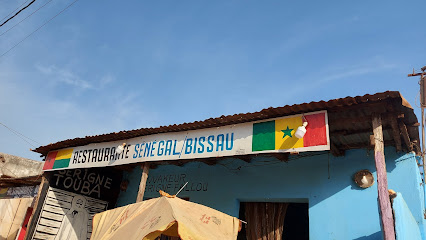
Restaurante Aurora Monte Santo
Experience authentic Guinea-Bissau cuisine at Restaurante Aurora Monte Santo in Quebo – where every dish is a celebration of local flavors.
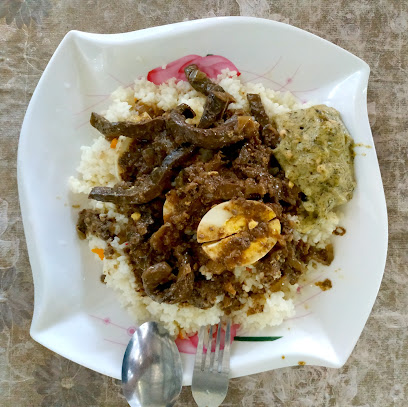
Markets, malls and hidden boutiques
Dunia Hotel Bissau (Azalaï Hotel 24 de Setembro)
Experience the vibrant culture and comfort at Dunia Hotel Bissau, your gateway to the heart of Guinea-Bissau.

Restaurante Papa Loca
Discover the culinary delights of Guinea-Bissau at Restaurante Papa Loca, where local flavors and vibrant atmosphere come together for an unforgettable dining experience.
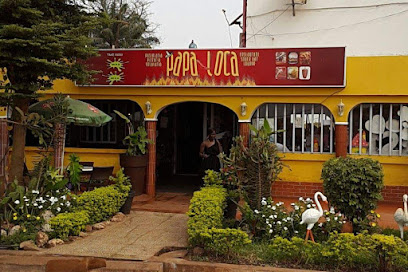
O Bistro
Experience authentic Italian cuisine at O Bistro in Bissau, where every dish promises a delightful taste of Italy amidst local charm.
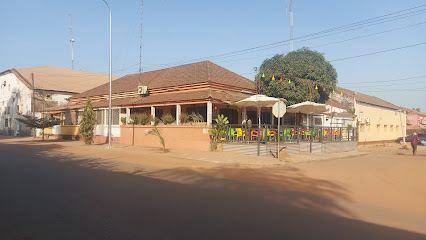
Coqueiros Bissau
Experience the rich culinary heritage of Guinea-Bissau at Coqueiros Bissau, where fresh seafood and vibrant flavors come together in a lively atmosphere.
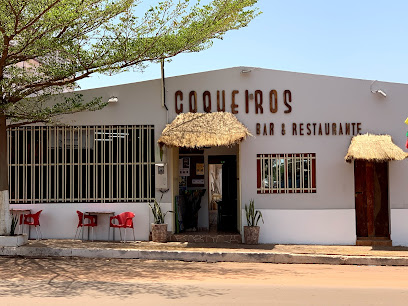
Ponta Anchaca
Discover the serene beauty of Ponta Anchaca in the Bijagos Archipelago, a perfect getaway for relaxation and exploration.

Empire Square
Explore Empire Square in Bissau, a serene memorial park reflecting Guinea-Bissau's rich history and vibrant culture amidst beautiful landscapes.
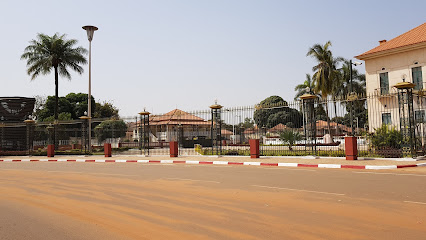
A Padeira Africana
Discover the authentic taste of African cuisine at A Padeira Africana in Bissau, where tradition meets flavor in every dish.
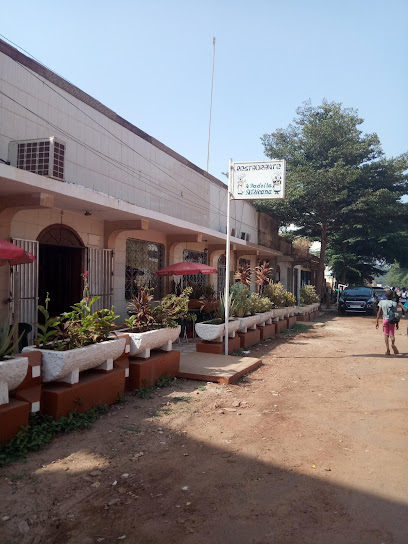
Cufada Lagoons Natural Park
Experience the stunning landscapes and rich biodiversity of Cufada Lagoons Natural Park, a true natural gem in Guinea-Bissau.
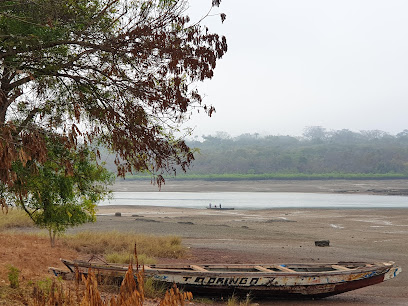
Loja Americana
Discover the latest electronics at Loja Americana in Bissau, Guinea-Bissau, where technology meets vibrant local culture.
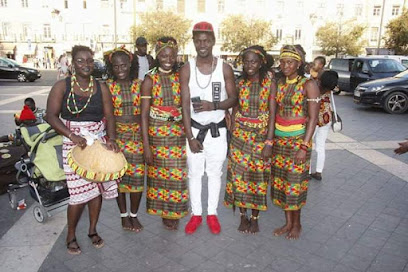
CONSULMAR BISSAU
Experience the best of Guinea-Bissau's maritime services at Consulmar Bissau, where adventure and convenience meet.
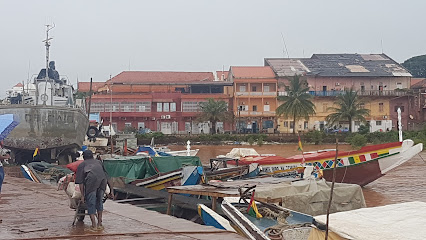
Fort São José da Amura
Explore the historic Fort São José da Amura in Bissau, Guinea-Bissau, where history meets stunning coastal views.
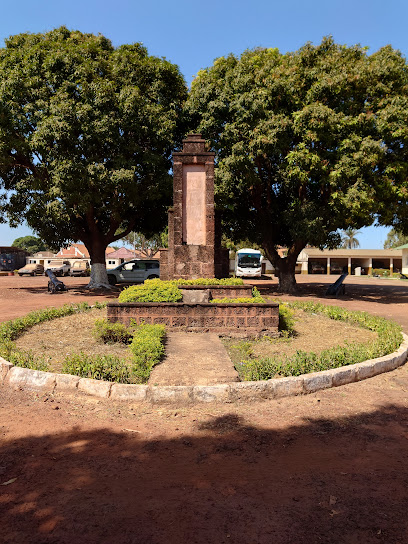
Centro Artístico Juvenil
Discover the vibrant artistry of Guinea-Bissau at Centro Artístico Juvenil, a cultural hub for handicrafts and local creativity.

Fort Cacheu
Explore Fort Cacheu: A Historical Fortress in Guinea-Bissau Offering Stunning Views and Insight into Colonial Heritage.
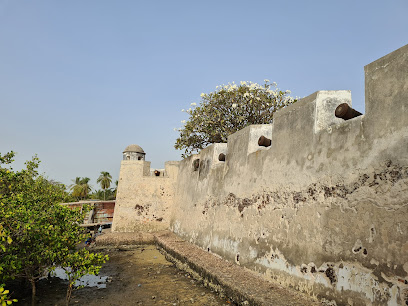
غينيا بيساو
Experience the vibrant culture and stunning landscapes of Guinea-Bissau, a hidden gem on the West African coast.

Fashion Canté
Explore the vibrant fashion scene of Bissau at Fashion Canté, where local culture meets contemporary style in unique clothing collections.
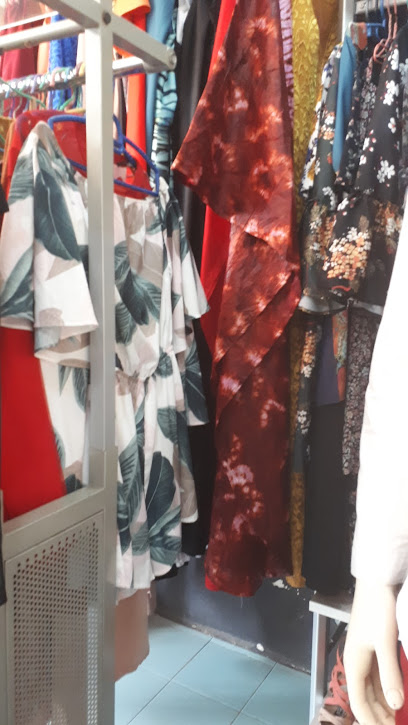
Essential bars & hidden hideouts
Dunia Hotel Bissau (Azalaï Hotel 24 de Setembro)
Experience the comfort and charm of Dunia Hotel Bissau, a perfect blend of relaxation and local culture in Guinea-Bissau.

Restaurante Papa Loca
Experience the vibrant flavors of Bissau at Restaurante Papa Loca, where traditional West African cuisine meets a warm and inviting atmosphere.
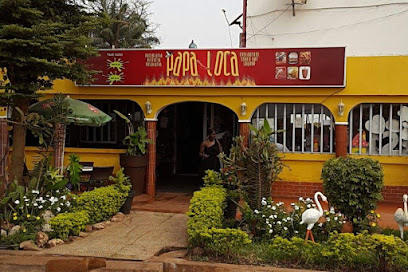
O Bistro
Experience authentic Italian cuisine at O Bistro in Bissau, where delectable dishes and a cozy atmosphere await every traveler.
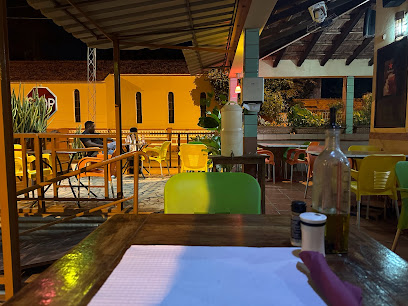
Coqueiros Bissau
Experience the vibrant culinary scene of Bissau at Coqueiros, where local flavors meet international dishes in a welcoming environment.
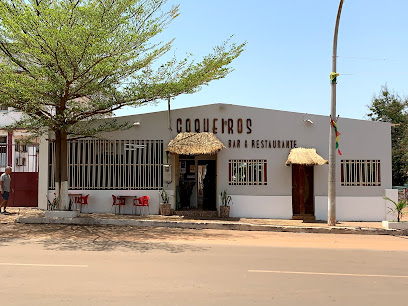
A Padeira Africana
Discover the heart of Guinea-Bissau's cuisine at A Padeira Africana, where vibrant flavors meet warm hospitality for a truly local dining experience.
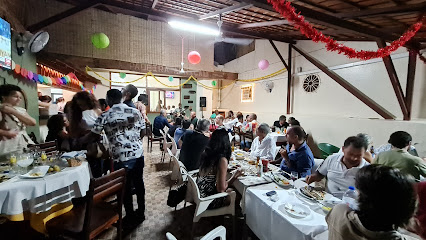
Almagui Restaurante & Apart-Hotel
Almagui Restaurante & Apart-Hotel: Savor authentic Guinea-Bissau cuisine and enjoy comfortable lodging in the heart of Bissau.
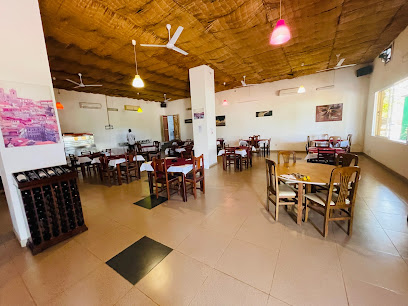
Bambu
Experience the vibrant nightlife of Bissau at Bambu, where locals and tourists unite for unforgettable nights filled with music and dancing.
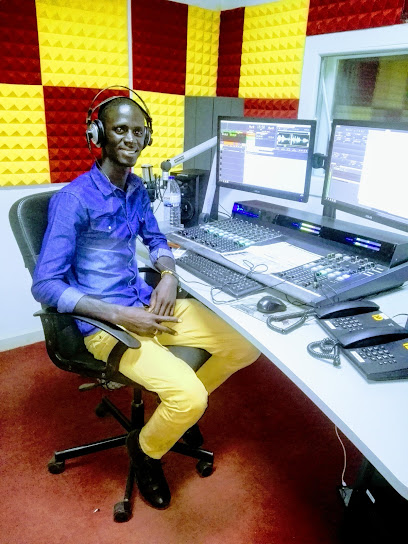
Marisqueira de Safim
Experience the vibrant flavors of Guinea-Bissau at Marisqueira de Safim, where seafood meets local tradition in a delightful dining atmosphere.
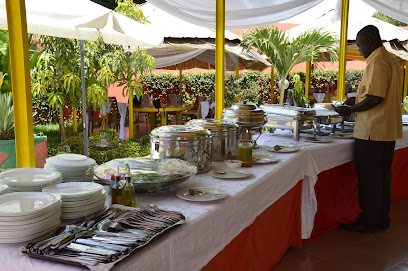
Kings Club
Immerse yourself in the vibrant nightlife of Bissau at Kings Club, a premier live music bar featuring local talents and a lively atmosphere.
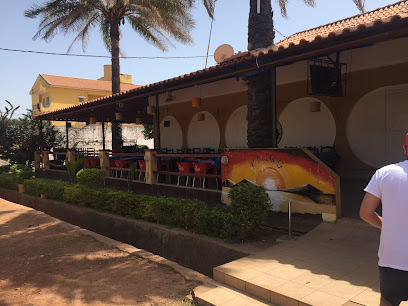
Antika Bissau
Experience the vibrant ambiance and local flavors at Antika Bissau, a premier lounge destination in Guinea-Bissau's capital.
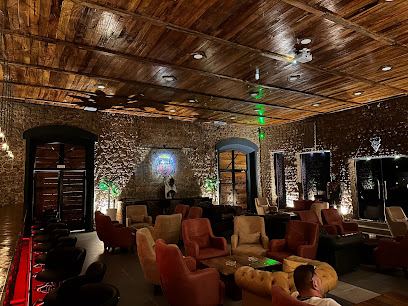
Discoteca TABANKA
Discover the vibrant nightlife of Discoteca TABANKA in Bissau, where music, dance, and culture come together for an unforgettable evening.
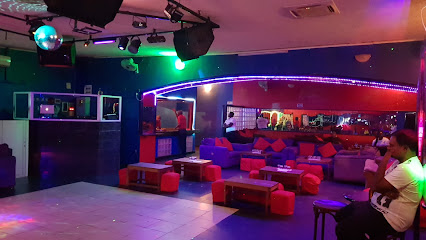
Conqueiros Bar
Experience the vibrant culture of Guinea-Bissau at Conqueiros Bar, where delicious local cuisine meets a lively atmosphere.
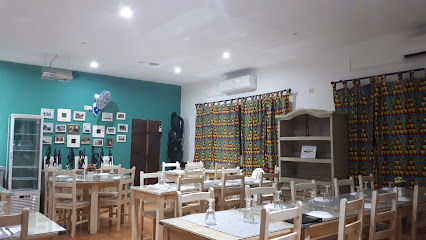
Queen Shisha
Discover Queen Shisha: Bissau's premier bar for shisha, cocktails, and a vibrant nightlife experience.
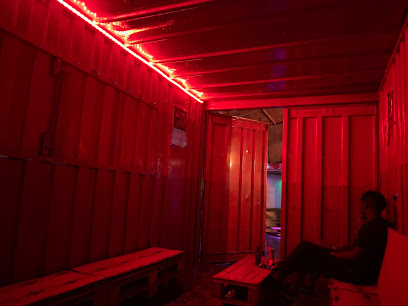
Assimiu
Experience the vibrant culture of Bissau at Assimiu, where delicious drinks and lively ambiance come together for an unforgettable night out.
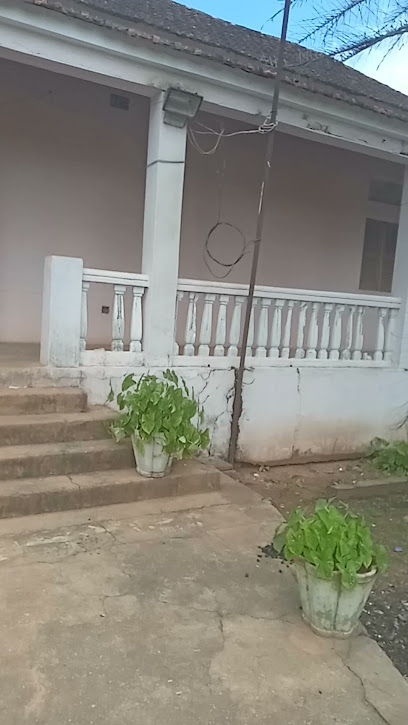
Local Phrases
-
- HelloNô ti bô
[noh tee boh] - GoodbyeKaiõ
[ka-yoh] - YesSima
[see-mah] - NoNâ
[nah] - Please/You're welcomeFavor
[fah-vohr] - Thank youObrigado
[oh-bree-gah-doh] - Excuse me/SorryDesculpe
[dehs-kool-peh] - How are you?Kumé ki bô sta?
[koo-meh kee boh stah] - Fine. And you?Bem. Ê bô?
[behn. eh boh] - Do you speak English?Bô flá Inglês?
[boh flah een-glehs] - I don't understandNâ kumprêndi
[nah koom-prehn-dee]
- HelloNô ti bô
-
- I'd like to see the menu, pleaseMê ké bê menu, favor
[meh keh beh meh-noo, fah-vohr] - I don't eat meatNâ mê kuma karni
[nah meh koo-mah kahr-nee] - Cheers!Txi bô
[chee boh] - I would like to pay, pleaseMê ké paga, favor
[meh keh pah-gah, fah-vohr]
- I'd like to see the menu, pleaseMê ké bê menu, favor
-
- Help!Ajuda!
[ah-zhoo-dah] - Go away!Sai diâ!
[sah-ee jee-ah] - Call the Police!Pidi polisia!
[pee-dee poh-lee-zee-ah] - Call a doctor!Pidi um mêdiku!
[pee-dee oom meh-dee-koo] - I'm lostMê tâ perdí
[meh tah pehr-dee] - I'm illMê tá duenti
[meh tah doo-ehn-tee]
- Help!Ajuda!
-
- I'd like to buy...Mê ké kumpá...
[meh keh koom-pah] - I'm just lookingMê tâ só pâ kuma
[meh tah soh pah koo-mah] - How much is it?Kantu kusta?
[kahn-too koos-tah] - That's too expensiveTudu kara
[too-doo kah-rah] - Can you lower the price?Bô pô kuxi kusta?
[boh poh koo-shee koos-tah]
- I'd like to buy...Mê ké kumpá...
-
- What time is it?Kantu ora ê?
[kahn-too o-rah eh] - It's one o'clockÊ ora unu
[eh o-rah oo-noo] - Half past (10)Mêya diâ (10)
[meh-yah jee-ah (djee-ahs)] - MorningManhanha
[mahn-yahn-yah] - AfternoonTardi
[tahr-dee] - EveningSê
[seh] - YesterdayOnti
[awn-tee] - TodayOji
[oh-zhee] - TomorrowAmâ
[ah-mah] - 1Unu
[oo-noo] - 2Doxi
[doh-shee] - 3Tresi
[treh-shee] - 4Kuati
[kwah-tee] - 5Sinki
[seen-kee] - 6Sisi
[see-see] - 7Seti
[seh-tee] - 8Oitu
[oh-ee-too] - 9Nôvi
[noh-vee] - 10Desi
[deh-shee]
- What time is it?Kantu ora ê?
-
- Where's a/the...?Ondi ê...
[ohn-dee eh] - What's the address?Kantu di distinu?
[kahn-too dee dees-tee-noo] - Can you show me (on the map)?Bô pô mostrâ mê (na mapa)?
[boh poh mohs-trah meh (nah mah-pah)] - When's the next (bus)?Kantu bai ser prósimu (bus)?
[kahn-too by sahr proh-see-moo (boos)] - A ticket (to ....)Un bilhêtu (pa ....)
[oon beel-eh-too (pah)]
- Where's a/the...?Ondi ê...
History of Quebo
-
Quebo, a town in the Gabú Region of southeastern Guinea-Bissau, has a rich and complex history. It was originally established by indigenous tribes who settled in the area due to its fertile land and strategic location near the Corubal River. These early communities thrived on agriculture, fishing, and trade with neighboring regions.
-
Before the arrival of European colonizers, Quebo was part of the Kaabu Empire, a powerful Mandinka kingdom that dominated the region from the 13th to the 19th century. The Kaabu Empire was known for its military prowess and vibrant culture, and Quebo played a significant role as a local center for trade and administration.
-
In the late 19th century, Guinea-Bissau, including Quebo, came under Portuguese colonial rule. The town became a focal point for colonial administration and missionary activities. Portuguese influence brought changes in architecture, education, and religion, although local resistance and cultural preservation remained strong.
-
Quebo was a significant location during the Guinea-Bissau War of Independence (1963-1974). The town and surrounding areas were strategic points for the PAIGC (African Party for the Independence of Guinea and Cape Verde) guerrilla fighters. The local population supported the independence movement, contributing to the eventual liberation from Portuguese rule.
-
After Guinea-Bissau gained independence in 1974, Quebo underwent various phases of development and reconstruction. The town has seen improvements in infrastructure, education, and healthcare. Traditional cultural practices and festivals have been revived, and Quebo continues to be a vibrant community that reflects the diverse heritage of Guinea-Bissau.
-
Quebo is known for its rich cultural heritage, including traditional music, dance, and art. The town hosts several festivals throughout the year, celebrating local customs and historical events. These festivals are characterized by vibrant performances, colorful attire, and communal gatherings, offering a glimpse into the unique cultural tapestry of the region.
Quebo Essentials
-
Quebo is located in the southeastern region of Guinea-Bissau. The nearest international airport is Osvaldo Vieira International Airport in Bissau, approximately 200 kilometers away. From Bissau, you can take a bus or hire a taxi to Quebo. The journey typically takes around 4 to 5 hours by road, depending on the road conditions. It is advisable to arrange transportation in advance, as public transport options can be limited.
-
Quebo is a small town, and many of its attractions are within walking distance. For longer trips, local taxis and motorbike taxis (known as 'moto-taxis') are readily available and relatively inexpensive. There are also minibuses that connect Quebo to nearby towns and villages. Renting a car is an option, but be aware that road conditions can be challenging, especially during the rainy season.
-
The official currency in Guinea-Bissau is the West African CFA Franc (XOF). Credit cards are not widely accepted, so it is advisable to carry cash. ATMs are scarce in Quebo, so it is recommended to withdraw sufficient cash in Bissau before traveling. Ensure you have small denominations, as change can be difficult to obtain in local markets and smaller establishments.
-
Quebo is generally a safe destination for tourists, but it is important to take standard precautions. Avoid walking alone at night, especially in poorly lit areas. Keep an eye on your belongings in crowded places and be cautious of pickpockets. While there are no specific high-crime areas targeting tourists, it is always best to stay vigilant and aware of your surroundings.
-
In case of emergency, dial the local emergency number 112 for immediate assistance. Quebo has a local police station and a small medical clinic. For serious medical emergencies, it is advisable to seek assistance in Bissau, where better medical facilities are available. Ensure you have travel insurance that covers medical emergencies, and keep a list of local emergency contacts handy.
-
Fashion: Do dress modestly, especially in rural areas. Avoid wearing revealing clothing. Religion: Do respect local customs and traditions. Always ask for permission before taking photos of religious sites or ceremonies. Public Transport: Do be respectful and patient when using public transport. Don't expect strict adherence to schedules. Greetings: Do greet people with a handshake or a friendly wave. It's polite to ask about someone's health and family as a form of greeting. Eating & Drinking: Do try local dishes and accept food offerings graciously. Don't refuse hospitality, as it is considered impolite.
-
To experience Quebo like a local, visit the weekly markets where you can buy fresh produce and traditional goods. Engage with locals, as they are often friendly and willing to share stories about the town's history and culture. Don't miss the opportunity to attend a local festival or ceremony, which offers a unique insight into the community's way of life. Exploring the natural surroundings, such as the nearby forests and rivers, can also provide a memorable experience.
Trending Landmark in Quebo
-
Dunia Hotel Bissau (Azalaï Hotel 24 de Setembro)
-
Coqueiros Bissau
-
Ponta Anchaca
-
Empire Square
-
Praca Titina Silá
-
Cufada Lagoons Natural Park
-
CONSULMAR BISSAU
-
Monumento aos Heróis da Independência
-
Bubaque
-
Fort São José da Amura
-
Bubaque Island Hotel
-
Fort Cacheu
-
غينيا بيساو
-
World Guiné Bissau
-
Dulombi-Boe National Park_1
Nearby Cities to Quebo
-
Things To Do in Buba
-
Things To Do in Bissau
-
Things To Do in Canchungo
-
Things To Do in Soma
-
Things To Do in Conakry
-
Things To Do in Janjanbureh
-
Things To Do in Farafenni
-
Things To Do in Brikama
-
Things To Do in Gunjur
-
Things To Do in Lamin
-
Things To Do in Banjul
-
Things To Do in Serekunda
-
Things To Do in Serrekunda
-
Things To Do in Bakau
-
Things To Do in Kaolack






